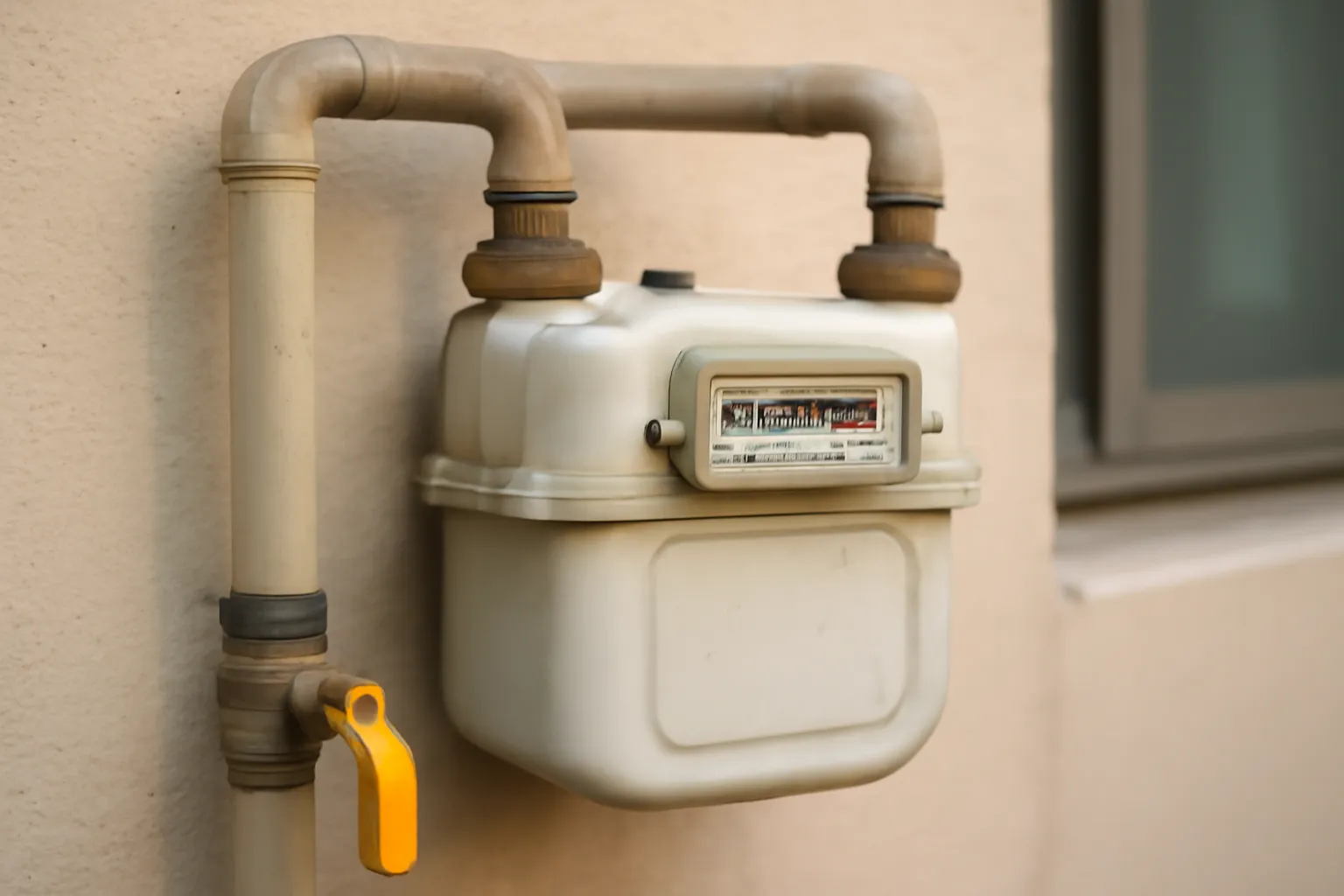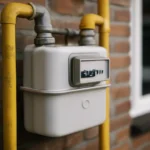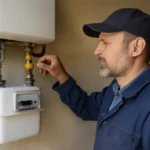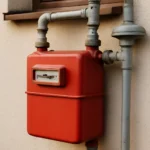Are you wondering who is responsible for the cost of replacing a city gas meter? Whether you’re a tenant or a landlord, understanding who bears the cost is crucial. This guide covers all the details about city gas meter replacement costs, including landlord responsibilities, tenant obligations, and more.
Understanding City Gas Meter Replacement Costs
City gas meters are essential for tracking gas consumption in homes, offices, and businesses. Over time, meters may need to be replaced due to aging, malfunction, or regulatory updates. Replacing these meters can come with a range of costs, depending on several factors like location, the utility company, and whether you’re a tenant or a landlord. Let’s break down the cost and responsibilities involved in the city gas meter replacement.
1. Average City Gas Meter Replacement Costs
Typically, replacing a city gas meter isn’t something that homeowners or tenants think about frequently. However, it’s important to recognize the potential costs involved in the event of replacement. On average, the cost of replacing a gas meter ranges from $100 to $500, depending on the service provider, the complexity of the installation, and your location.
-
Labor Costs Labor to install the new meter often accounts for a large portion of the cost. This can range from $50 to $150 per hour, depending on the difficulty of installation.
-
Material Costs The meter itself can range in price. Older, mechanical meters may cost less, while modern digital meters, especially those with smart metering capabilities, can be on the higher end.
-
Additional Fees Utility companies may charge for the administrative tasks associated with scheduling the meter change or performing safety checks.
Pro Tip Always inquire with your local utility company for an estimate before proceeding. They may offer replacement services at a discounted rate or, in some cases, even provide it for free if the meter is outdated.
2. City Gas Meter Replacement Cost for Landlords
Landlords often face additional questions when it comes to gas meter replacement costs. If the property is a rental, the question arises about whether the landlord or the tenant is responsible for covering the cost.
-
Landlord Responsibilities As the property owner, landlords typically bear the responsibility for ensuring that essential utilities, such as gas meters, are in working order. If a meter is damaged, outdated, or malfunctioning, the landlord is generally expected to handle the replacement.
-
Landlord-Tenant Agreement In some cases, the lease agreement may specify whether tenants are responsible for certain repairs or replacements. However, even with such clauses, essential services like gas meters often remain the responsibility of the landlord. It is vital to review your lease terms carefully to understand your responsibilities.
-
Tax Deductions In many jurisdictions, landlords can claim the cost of replacing a gas meter as part of property maintenance expenses. Make sure to keep detailed records of any replacements for tax purposes.
3. City Gas Meter Replacement Fees for Tenants
Tenants also need to understand their rights and obligations when it comes to gas meter replacement. Generally, tenants are not required to cover the cost of replacing a gas meter unless specified by their lease agreement. However, there are instances where a tenant might be involved in the process:
-
In Case of Damage If the tenant is responsible for damage to the gas meter (such as tampering, breaking, or misuse), they may be asked to pay for the repair or replacement.
-
Meter Upgrades If the meter requires upgrading for modern systems, such as smart meters, the tenant may face additional charges depending on their lease and local regulations. However, such upgrades are typically part of the landlord’s responsibility, especially when they improve the overall property’s efficiency or safety.
-
Shared Responsibility In some lease agreements, tenants may be required to cover specific minor repairs to fixtures within the apartment. It’s a good idea to clarify these terms in advance to avoid confusion later.
👉More on Gas Meter Replacement Costs👈
What Determines Who Pays for the Gas Meter Replacement?
Understanding the dividing line between tenant and landlord responsibilities when it comes to gas meter replacement can help avoid disputes. Here are the most important factors that determine who pays for the replacement:
1. Property Ownership
As mentioned, landlords are generally responsible for the repair or replacement of systems that serve the entire property. A gas meter falls under this category. If a gas meter is outdated or needs replacement due to wear and tear, the landlord is typically expected to pay for it. However, certain exceptions may exist based on the lease agreement.
2. Terms of the Lease Agreement
Always refer to your lease agreement for clarification. Some leases may outline who bears responsibility for specific utility-related expenses, including gas meter replacement. Tenants should carefully read these terms to ensure they fully understand their obligations.
3. Location and Local Laws
The regulations surrounding gas meter replacement costs may vary from region to region. Some areas may have specific laws that govern the replacement of utility meters, outlining which party should bear the cost. In some locations, utility companies may even offer free meter replacements if certain conditions are met, such as technological upgrades or safety improvements.
4. Reason for Replacement
The reason for replacing the gas meter also plays a role in determining who is responsible for the cost. If the meter fails due to normal wear and tear, it is generally the responsibility of the landlord to replace it. However, if the tenant caused the damage, they may be liable for the replacement cost.
👉Learn More About Gas Meter Responsibilities👈
City Gas Meter Replacement and Charter Agreements
In cases where the property operates under a charter or rental agreement, there may be special provisions about who handles gas meter replacement. Charter agreements, often more comprehensive than regular rental contracts, may include specific clauses regarding maintenance responsibilities. Understanding these provisions can save both landlords and tenants from unexpected costs or conflicts.
1. Charter Agreements and Gas Meter Replacement
Charter agreements usually impose stricter rules about what is covered by the landlord and what the tenant is responsible for. Many times, these agreements will specify that the landlord will handle major utility-related expenses, including gas meter replacement.
2. Negotiating Gas Meter Replacement Costs
In a charter agreement, tenants may have the opportunity to negotiate costs, especially in cases where the meter upgrade is tied to the property’s efficiency or comfort level. Tenants can negotiate a share of the cost in exchange for an extended lease period or other perks.
👉Explore Charter Agreements and Gas Meter Costs👈
Conclusion
City gas meter replacement is often an overlooked yet necessary part of maintaining a safe and efficient home or rental property. Whether you’re a tenant or a landlord, understanding the responsibilities and potential costs involved can help prevent disputes and unexpected expenses. By being informed about who pays for what and reviewing lease terms or charter agreements, both parties can ensure that the gas meter replacement process goes smoothly.
In the words of Benjamin Franklin, “An ounce of prevention is worth a pound of cure.” Understanding these details before issues arise will save you time, money, and stress in the long run.






